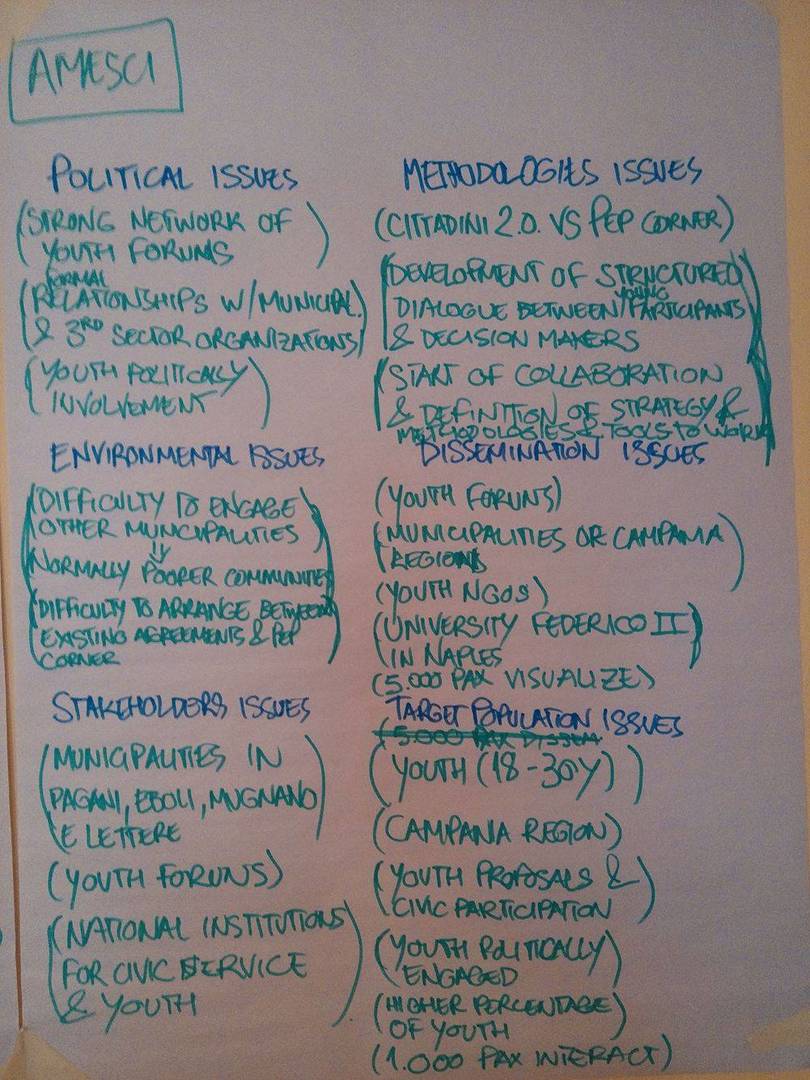IT Platform, Google Drive &
Templates
The lack of feasible answers during the last 6 months from the part of what would be the official providers of this service, Kosovo Innovation made us decide to break the partnership with the organization to supply the IT Platform.
After this decision, all partners agreed on the following steps to overcome this adversity:
a) Everyone should look for new solutions and partners during this next two months for the IT platform, preferably with people they know (during the next month). A reference for further research on what should be the operating application for the platform would be liquidfeedback.org, an existing website and software program that can be used as an example for what could be done regarding possible applications and functions of the platform.
b) Organizations should do a Google form and maybe even a Metooo page, if they opt for it before the events. This will provide an insight on who is going and to have an idea of the topics people want to speak about. It also helps us to create a greater involvement and understanding of the program of activities for people that are coming. Metooo can be also used for presentation of reports because it’s graphical approach and intuitive interface. Other means and tools to work these matters will be provided in upcoming meetings and developments.
Google Drive organization
For future projects, please use the AIM structure to keep uploaded ideas, concept papers, important documents, mandates and other relevant info to be shared with all our partners when developing synergies among us.
Regarding the AIM Network folder, each organization will have three folders to keep info at this moment and that you should upload when you have more time for it:
a) Building (project design, potential projects to be developed, mandates and partnerships built for further development of the network);
b) Implementation (project implementation after approval, funding programs and their general rules and organizational issues regarding the approved projects like communication, finances, ICT (Information Communication Technologies), official documentation, operations and support methodologies and tools.
c) Institutional (official documentation regarding the institution, graphic materials, financial papers and other relevant matters like collaboration protocols)
Regarding People’s Corner, its location is inside AIM Network > Backup > Implementation > EfC – People’s Corner.
Inside the Communication folder, you should keep all the relevant info and materials you’ve worked and keep them updated with:
a) Photos (uploaded photos from relevant meetings and public events)
b) Videos (uploaded videos from relevant meetings and public events, as well as the video testimonies regarding the impact before and after of People’s Corner)
c) Press Room (relevant news, articles or other dissemination materials produced by media or other producers of contents, with mention to date and location)
d) Graphic Design (all visual identity and graphic design materials, as well as lettering, roll-ups, banners and other means of physical means of dissemination)
e) Press Kit (all info, presentation and graphic design materials that are sent to stakeholders and/or opinion makers’ to support People’s Corner communication and dissemination with external partners)
f) Templates (press releases and text bodies to be used accordingly with target groups to present the project or initiatives that are being developed for each phase of the project)
In the Finances folder, you should keep updated your Individual Expenses Report, project budget and other info, according with your country operational costs and/or project meetings expenses.
The Operations folder is divided accordingly with each countries’ operation subfolder and template documents, like the Stakeholders’ of Opinion Makers’ Google form to be used in each national context (please make copies of these, translate and adapt according to your needs in your country).
The Official Documentation folder has all the relevant info regarding the program, protocols, agreements and documentation between the funding program managing agency, the promoter (Backup) and partners. In case you establish formal agreements with other stakeholders, please scan those documents and put them in this folder, with your organization’s name.
In the ICT folder we will be having at this moment 2 different folders that serve as libraries and upcoming training materials to support your work with the IT platform and other technological means that we will adapt to our needs that will be the software and smart cities sensors and/or technology to develop our future blended learning approach for all kind of users.
For last but not least important, all Supporting Methodologies and Tools for training, people’s activation and democratic labs will be provided through this folder. We will prepare video and template tutorials to help you guys to apply techniques that could be useful for our future work.
We will ask you to share as much content that you think might be relevant or that it would support our common effort. Please warn or send us a concise explanatory email regarding new uploads on the Google Drive or sharing methodologies and tools for everyone.
Participant List Template:
Each one should be in each country’s language
Name, gender, age, contact
Logos should be: People’s Corner, Europe for Citizens, Organization own logo
Implementation check list Template:
Further info will be provided and other templates worked upon later on depending on the features of the IT platform




















